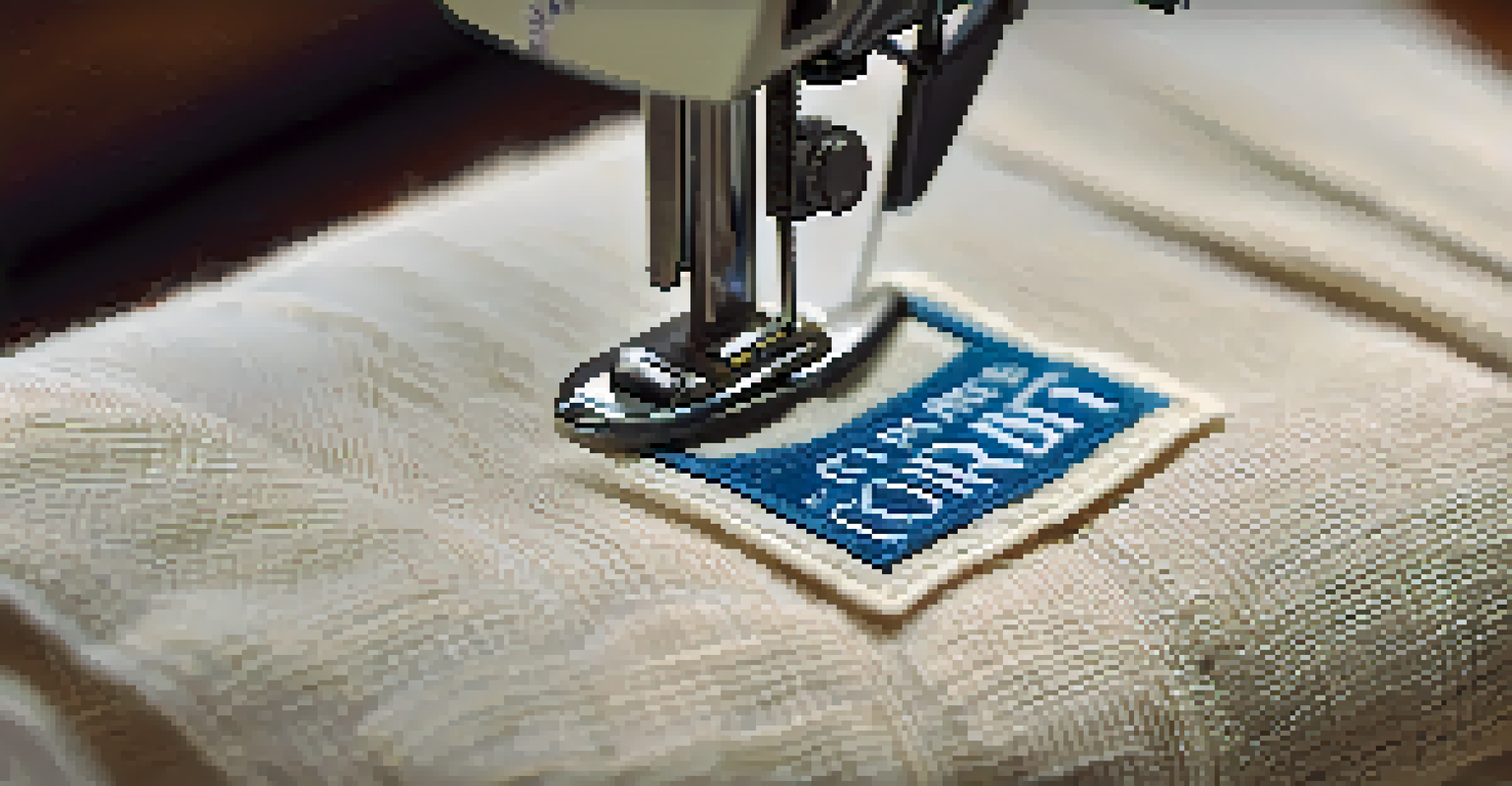Consumer Influence: Shaping Fashion Through Ethical Choices

Understanding Consumer Influence on Fashion Choices
Consumer influence in fashion is more powerful than ever. With social media platforms and online marketplaces, shoppers can share their opinions and preferences instantly. This connectivity creates a ripple effect, where a single post can spark trends or prompt discussions on ethical practices.
The consumer is not a moron, she is your wife.
For example, when a popular influencer promotes sustainable brands, their followers are likely to explore these options. As a result, brands are pressured to align their practices with consumer expectations. The modern shopper not only seeks style but also values the story behind the product.
This shift in focus means that consumers are now active participants in shaping the fashion landscape. They’re asking questions and demanding transparency, which has changed how brands approach their marketing and production strategies.
The Rise of the Ethical Consumer
The ethical consumer is a growing demographic that prioritizes sustainability and social responsibility. These shoppers are concerned about the environmental impact of their choices and the labor practices within the fashion industry. Their buying decisions reflect a desire to support brands that align with their values.

For instance, brands that emphasize fair trade practices or use eco-friendly materials are gaining traction among this group. The shift isn't just about style; it's about making informed choices that contribute to a better world. This trend has led to an increase in brands that focus on ethical production methods.
Consumer Influence Shapes Fashion Trends
Social media empowers consumers to drive trends and demand transparency from brands.
Ultimately, the rise of the ethical consumer signifies a movement towards more conscious shopping habits. It encourages brands to rethink their practices, leading to a more sustainable future for the fashion industry.
Social Media's Role in Ethical Fashion Awareness
Social media plays a pivotal role in raising awareness about ethical fashion. Platforms like Instagram and TikTok allow users to showcase their fashion choices alongside messages of sustainability. This visibility helps consumers make more informed choices and encourages them to consider the impact of their purchases.
Ethical fashion is not just a trend, it's a movement towards a more sustainable future.
For instance, hashtags like #SustainableFashion or #EthicalStyle can lead users to discover new brands committed to ethical practices. This user-generated content fosters a community of like-minded individuals who share tips and promote ethical brands. It amplifies the message that fashion can be both stylish and responsible.
As consumers engage with this content, they become advocates for change, influencing their peers and driving demand for sustainable options. The interconnectedness of social media enhances the collective voice of the ethical fashion movement.
The Impact of Brand Transparency on Consumer Trust
Transparency has become a cornerstone of consumer trust in the fashion industry. Brands that openly share their production processes, sourcing materials, and labor practices tend to resonate more with ethical consumers. This honesty fosters a sense of connection and loyalty between the brand and its customers.
For example, brands that provide detailed information about their supply chain and sustainable practices empower consumers to make educated choices. This level of transparency not only builds trust but also sets a standard for others in the industry. Customers are more likely to support brands that demonstrate accountability.
Ethical Consumers Demand Accountability
A growing number of shoppers prioritize sustainability and ethical practices in their purchasing decisions.
In this way, transparency is not just good for business; it’s essential for fostering a culture of ethical consumption. As more brands embrace this approach, it could lead to sweeping changes across the fashion landscape.
Consumer Activism: A Force for Change
Consumer activism is a powerful force reshaping the fashion industry. Shoppers are increasingly using their voices to challenge brands on unethical practices and demand change. Social media has become a platform for mobilizing movements and raising awareness about various issues, from labor rights to environmental concerns.
For example, campaigns that call for boycotts of companies with poor labor practices can lead to significant changes in how brands operate. When consumers unite behind a cause, they can create pressure that leads to tangible shifts in the industry. The collective power of informed consumers cannot be underestimated.
This kind of activism not only holds brands accountable but also inspires other consumers to become more conscious of their choices. It fosters a culture of responsibility and encourages a shift towards more ethical practices in fashion.
The Role of Certifications in Ethical Fashion
Certifications play a crucial role in guiding consumers towards ethical fashion choices. Labels like Fair Trade, GOTS (Global Organic Textile Standard), and B Corp signify a commitment to sustainability and ethical practices. These certifications help consumers easily identify brands that align with their values.
When a brand displays a certification, it reassures consumers about the ethical standards being met. This can be particularly important in a market flooded with greenwashing, where companies may exaggerate their sustainability claims. Certifications provide a measure of credibility and transparency.
Certifications Enhance Trust in Brands
Certifications like Fair Trade and GOTS help consumers identify brands committed to ethical practices.
As consumers become more educated about ethical practices, the demand for certified products is likely to grow. Brands that prioritize these certifications can gain a competitive edge while contributing to a more sustainable fashion landscape.
Future Trends: Ethical Choices Shaping Fashion Innovation
The future of fashion is increasingly intertwined with ethical choices. As consumer demand for sustainable options grows, brands are innovating to meet these expectations. This could lead to new materials, production methods, and business models that prioritize sustainability.
For instance, advancements in textile recycling and biodegradable fabrics are just a glimpse of what's possible. Brands that embrace innovation in sustainability will likely attract a more conscientious consumer base. The drive for change can lead to exciting developments within the industry.

Ultimately, as consumers continue to prioritize ethical considerations in their shopping habits, the fashion industry will have to adapt. This evolution promises to reshape the landscape, making way for a more sustainable and responsible future.